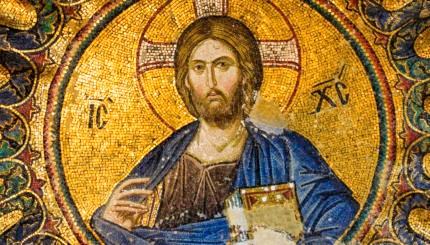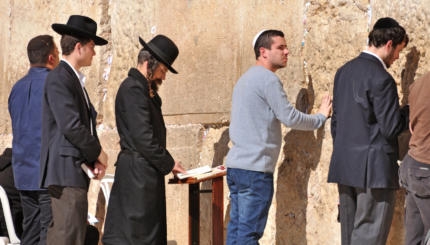In the last 30 years, debates about the role of women in religious life have ranged across the Jewish denominations. Influenced by trends in secular feminism, Jewish women have sought out ritual and leadership opportunities formerly restricted to them. And even as more traditional communities grapple with the marginalization of women in an unprecedented way, the history of female exclusion in Judaism continues to linger.
Women in Traditional Jewish Sources
The Bible is a compilation of numerous books written over several centuries, and thus cannot be said to present a single view of women. Women are sometimes presented as men’s equals–as in the first creation story in Genesis–and other times as secondary in status–as in the laws which place women under the authority of their husbands and fathers.
The rabbis of the Talmud and Midrash were more explicit in their discussions about women and their status in Judaism. Rabbinic sources describe women as foolish, licentious, and light-minded, but also compassionate and intelligent. Judith Hauptman has shown how the rabbis self-consciously tempered biblical laws to improve conditions for women.
In the Middle Ages, women’s lives continued to be scripted by Jewish law, but the general cultural setting of Jewish communities also had significant impact on the way women were viewed. In Muslim lands, women tended to be more sheltered than in Christian areas. However, there are suggestions that in certain cases, Jewish communities in the Islamic world were more accommodating. For example, documents from the Cairo Geniza–a storeroom of Hebrew texts–show that the right of a woman to instigate divorce–established in the Talmud–was upheld, whereas certain European rabbis tried to restrict this right.
Today, questions regarding women and the possibility of increased inclusion in Jewish life continue to be debated and discussed in responsa literature (written rabbinic answers to specific legal questions).

Jewish Feminist Thought
Jewish feminists are critical of the exclusion of women from traditional Judaism’s most hallowed rituals and practices. But this practical critique is rooted in a conceptual critique founded upon the belief that the values, experiences, and characteristics which Judaism privileges are fundamentally male. Thus, for example, that the normative descriptive imagery and pronouns for God are male suggests that–in Judaism–male characteristics are of supreme value. In a way, this conceptual critique is much more significant than the practical critique, because it calls for systematic changes in the way we think, not just in what we do.
Feminist theologians differ on the extent to which they think Judaism needs to be adjusted in order to correct this problem. But for some Jewish feminists, the privileging of male-ness is so imbedded in the structure of Judaism, that nothing less than a revolutionary re-creation of Judaism can suffice.



